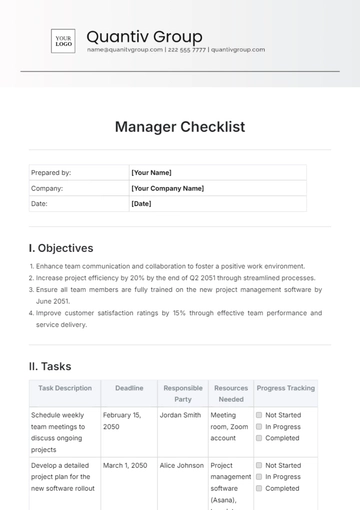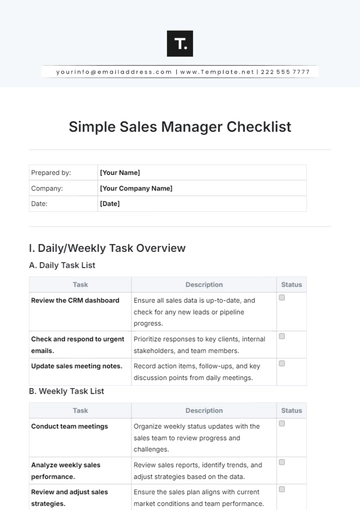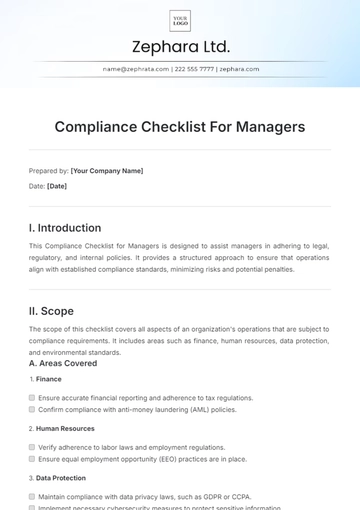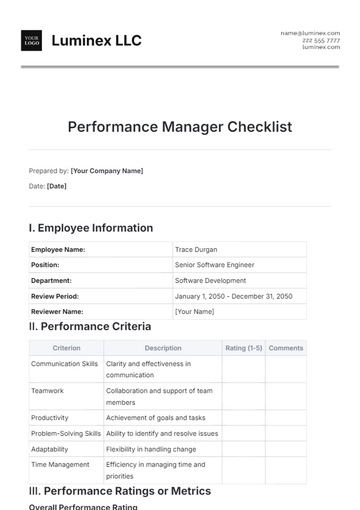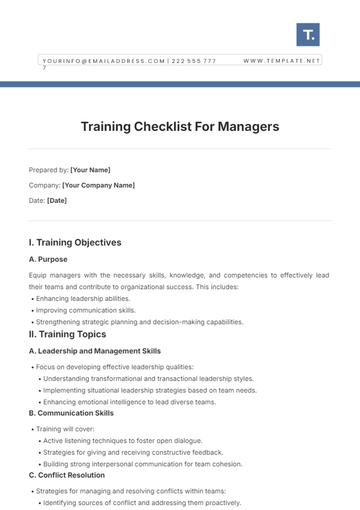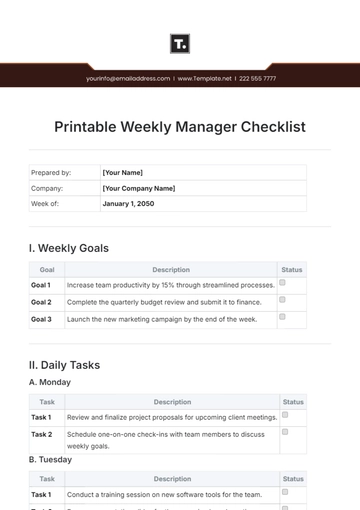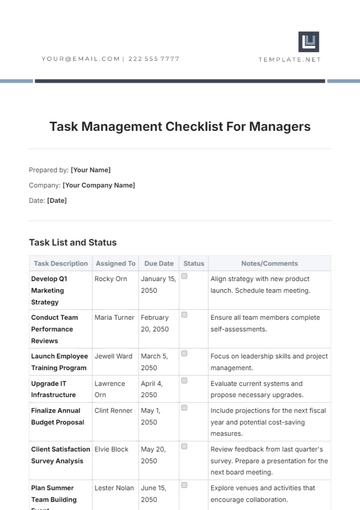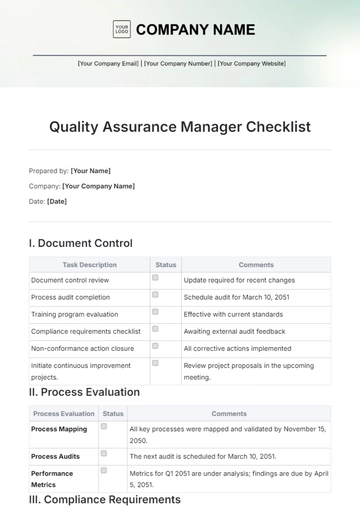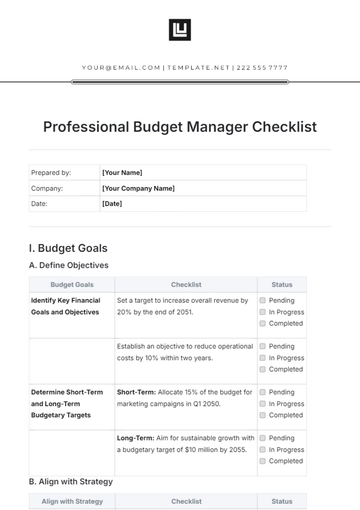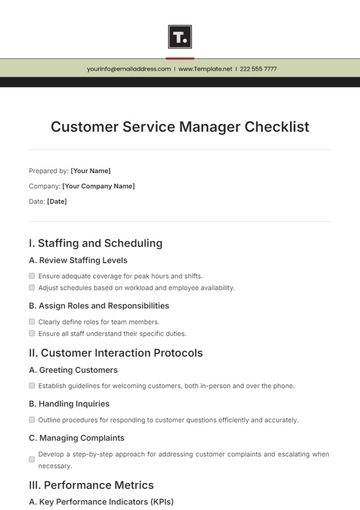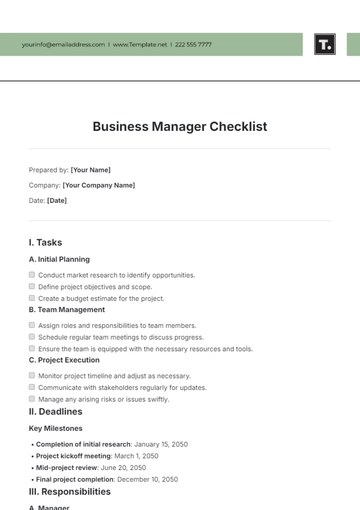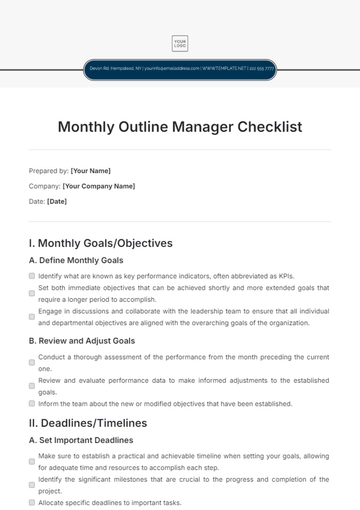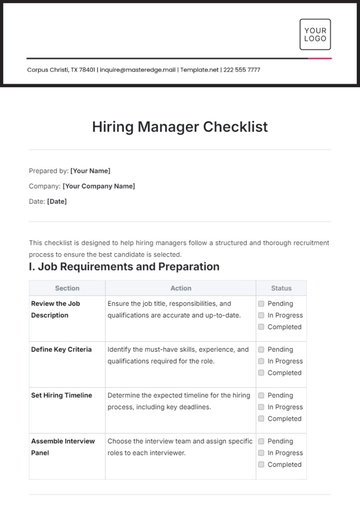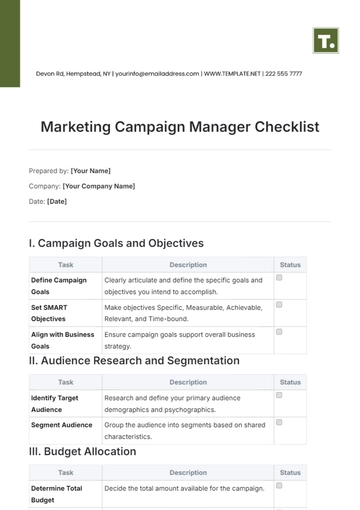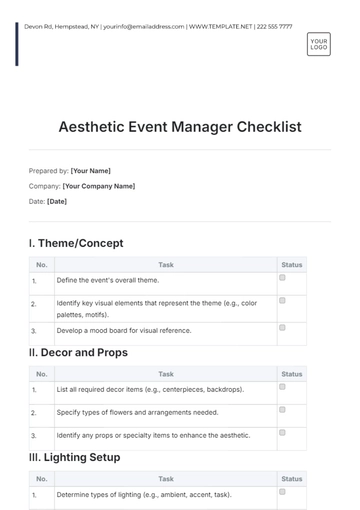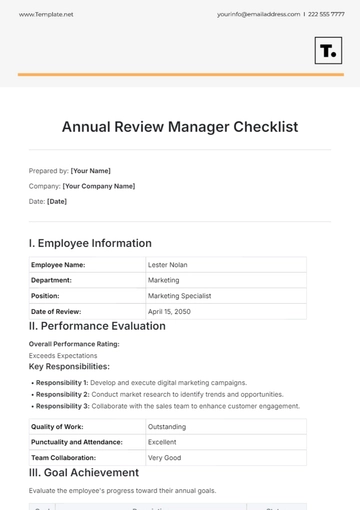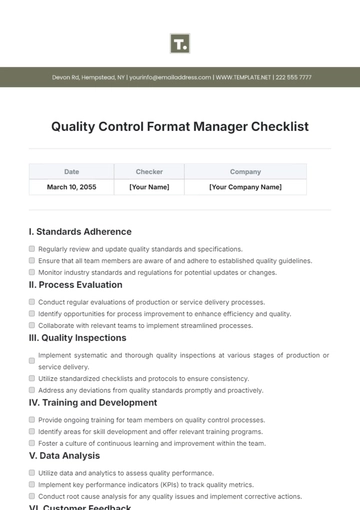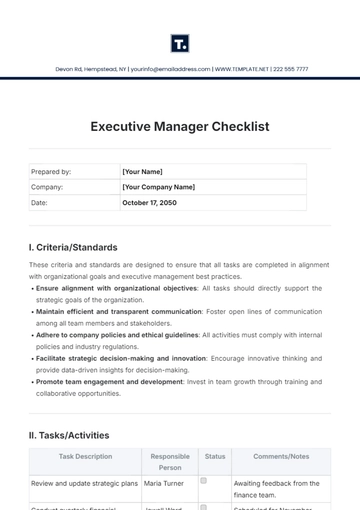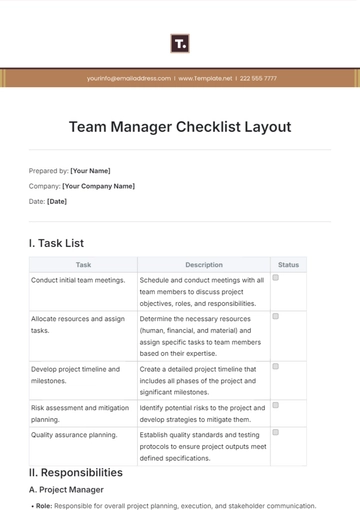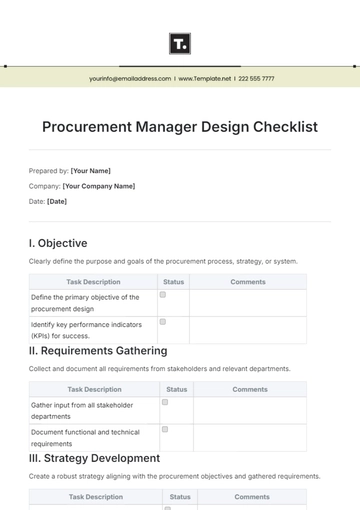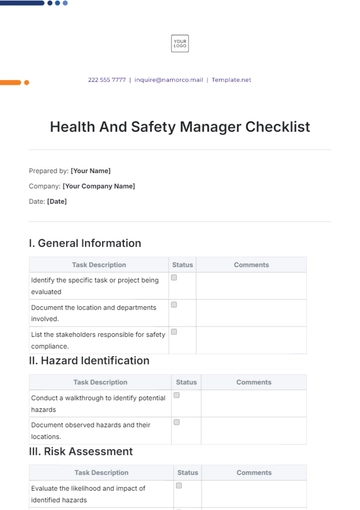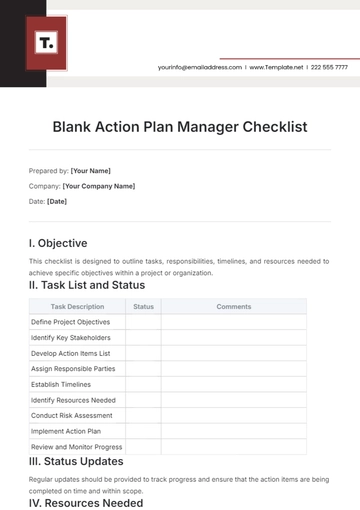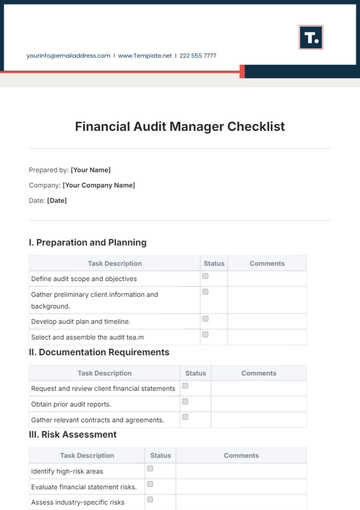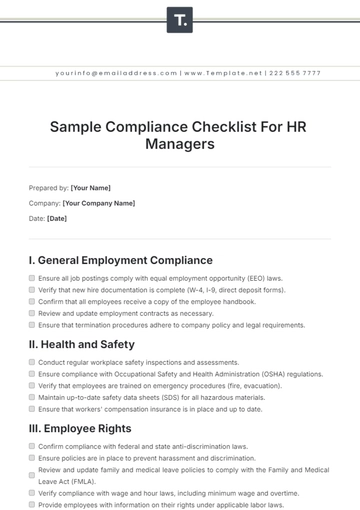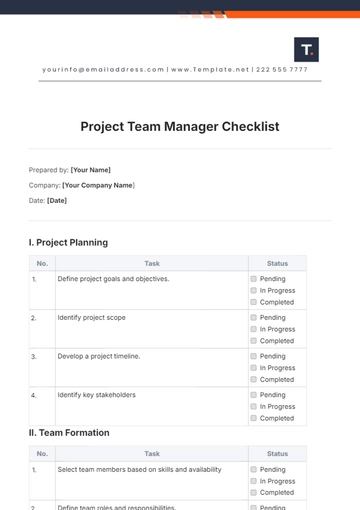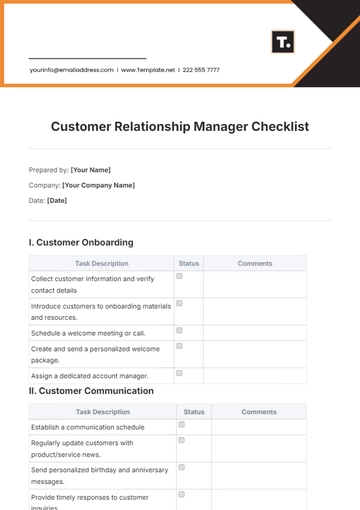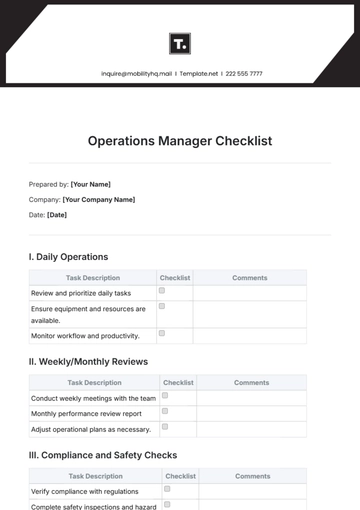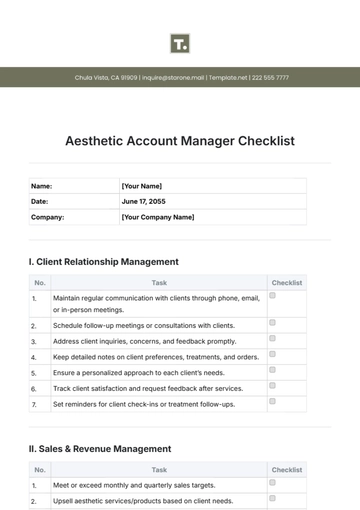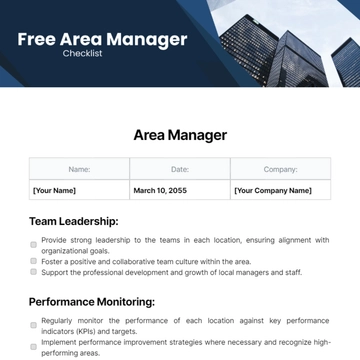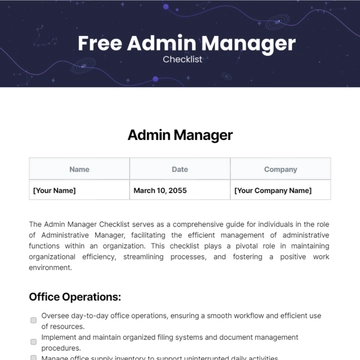Free Process Manager Checklist
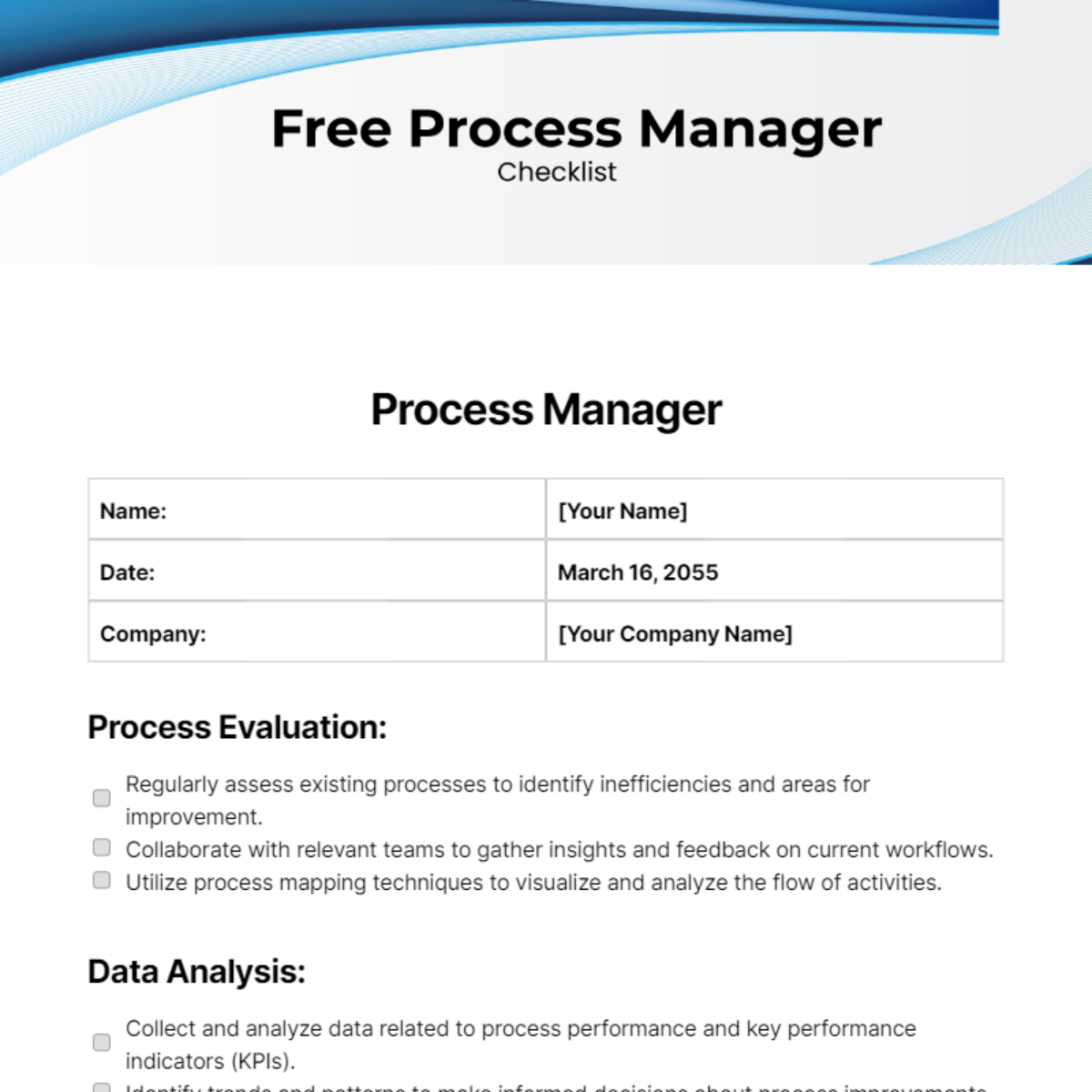
Name: | [Your Name] |
Date: | March 16, 2055 |
Company: | [Your Company Name] |
Process Evaluation:
Regularly assess existing processes to identify inefficiencies and areas for improvement.
Collaborate with relevant teams to gather insights and feedback on current workflows.
Utilize process mapping techniques to visualize and analyze the flow of activities.
Data Analysis:
Collect and analyze data related to process performance and key performance indicators (KPIs).
Identify trends and patterns to make informed decisions about process improvements.
Utilize statistical methods to measure and quantify process efficiency.
Stakeholder Collaboration:
Engage with stakeholders, including department heads and team members, to understand their needs and challenges.
Foster open communication to ensure a comprehensive understanding of process requirements.
Collaborate with cross-functional teams to implement holistic process improvements.
Documentation and Standardization:
Document existing processes, outlining each step and associated responsibilities.
Standardize procedures to ensure consistency across the organization.
Create and maintain a centralized repository for process documentation.
Continuous Improvement Initiatives:
Establish a culture of continuous improvement within the organization.
Encourage employees to suggest process enhancements and innovations.
Regularly review and update processes to reflect changing business needs and industry best practices.
Technology Integration:
Identify and implement technology solutions to streamline and automate processes.
Evaluate software tools that align with organizational goals and enhance operational efficiency.
Ensure seamless integration of technology into existing workflows.
Training and Development:
Provide training sessions to educate employees on new or updated processes.
Develop training materials and resources to support ongoing learning.
Assess the effectiveness of training programs and adjust as necessary.
Quality Control:
Implement quality control measures to ensure adherence to process standards.
Conduct regular audits and reviews to identify and rectify deviations.
Address any quality issues promptly to maintain high standards.
Risk Management:
Identify potential risks associated with existing processes and proposed improvements.
Develop risk mitigation strategies to minimize the impact of unforeseen challenges.
Regularly assess and update risk management plans.
Key Performance Indicators (KPIs):
Establish and monitor KPIs to measure the success of process improvements.
Define benchmarks and performance targets to track progress.
Utilize KPI data to make data-driven decisions and prioritize improvement initiatives.
Change Management:
Implement change management strategies to ease the transition to new processes.
Communicate changes effectively, addressing concerns and ensuring buy-in.
Provide support and resources to employees adapting to new workflows.
Collaboration Tools and Communication:
Utilize collaboration tools to facilitate communication and teamwork.
Establish clear communication channels for discussing process updates and changes.
Solicit feedback from employees to identify areas for improvement in communication.
Budget Management:
Develop and manage budgets for process improvement initiatives.
Allocate resources efficiently to support improvement projects.
Monitor expenditures and adjust budgets as necessary to meet project goals.
- 100% Customizable, free editor
- Access 1 Million+ Templates, photo’s & graphics
- Download or share as a template
- Click and replace photos, graphics, text, backgrounds
- Resize, crop, AI write & more
- Access advanced editor
Efficiently manage processes with the Process Manager Checklist from Template.net. This editable and customizable template, effortlessly tailored with our Ai Editor Tool, ensures a personalized and efficient process management routine. Elevate the managerial experience with this user-friendly checklist, designed for maximum efficiency. Customize effortlessly, ensuring comprehensive task management and successful process outcomes with ease and precision.
You may also like
- Cleaning Checklist
- Daily Checklist
- Travel Checklist
- Self Care Checklist
- Risk Assessment Checklist
- Onboarding Checklist
- Quality Checklist
- Compliance Checklist
- Audit Checklist
- Registry Checklist
- HR Checklist
- Restaurant Checklist
- Checklist Layout
- Creative Checklist
- Sales Checklist
- Construction Checklist
- Task Checklist
- Professional Checklist
- Hotel Checklist
- Employee Checklist
- Moving Checklist
- Marketing Checklist
- Accounting Checklist
- Camping Checklist
- Packing Checklist
- Real Estate Checklist
- Cleaning Checklist Service
- New Employee Checklist
- Food Checklist
- Home Inspection Checklist
- Advertising Checklist
- Event Checklist
- SEO Checklist
- Assessment Checklist
- Inspection Checklist
- Baby Registry Checklist
- Induction Checklist
- Employee Training Checklist
- Medical Checklist
- Safety Checklist
- Site Checklist
- Job Checklist
- Service Checklist
- Nanny Checklist
- Building Checklist
- Work Checklist
- Office Checklist
- Training Checklist
- Website Checklist
- IT and Software Checklist
- Performance Checklist
- Project Checklist
- Startup Checklist
- Education Checklist
- Home Checklist
- School Checklist
- Maintenance Checklist
- Planning Checklist
- Manager Checklist
- Wedding Checklist
- Vehicle Checklist
- Travel Agency Checklist
- Vehicle Inspection Checklist
- Interior Design Checklist
- Backpacking Checklist
- Business Checklist
- Legal Checklist
- Nursing Home Checklist
- Weekly Checklist
- Recruitment Checklist
- Salon Checklist
- Baby Checklist
- Equipment Checklist
- Trade Show Checklist
- Party Checklist
- Hospital Bag Checklist
- Evaluation Checklist
- Agency Checklist
- First Apartment Checklist
- Hiring Checklist
- Opening Checklist
- Small Business Checklist
- Rental Checklist
- College Dorm Checklist
- New Puppy Checklist
- University Checklist
- Building Maintenance Checklist
- Work From Home Checklist
- Student Checklist
- Application Checklist
